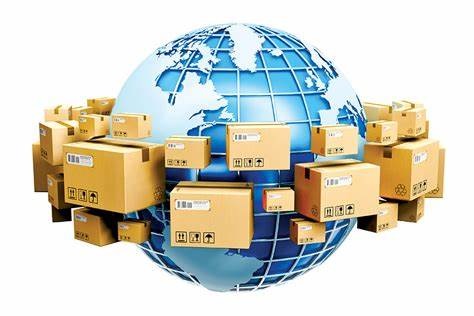Technology has revolutionized the way businesses operate in various industries, and international logistics services are no exception. In today’s globalized world, the efficient movement of goods across borders is essential for businesses to thrive.
As a result, technology has played a pivotal role in streamlining operations, reducing costs, improving customer service, and enhancing overall efficiency in international logistics services.
Introduction
Technology has revolutionized the way businesses operate in various industries, and international logistics services are no exception. In today’s globalized world, the efficient movement of goods across borders is essential for businesses to thrive.
As a result, technology has played a pivotal role in streamlining operations, reducing costs, improving customer service, and enhancing overall efficiency in international logistics services.
The Impact of e-Commerce and Online Platforms
One of the key drivers of change in international logistics services has been the rise of e-commerce and online platforms. With the increasing popularity of online shopping, businesses have had to adapt to meet the demands of a digital-first consumer base.
Online platforms have not only facilitated the buying and selling of goods but have also transformed the way logistics services are managed.
Advancements in Tracking and Traceability
Advancements in tracking and traceability technologies have been instrumental in improving the efficiency and transparency of international logistics services. Companies can now track their shipments from the moment they leave the warehouse until they reach the customer’s doorstep.
This level of visibility not only enhances customer satisfaction but also enables businesses to identify bottlenecks in their supply chain and take corrective actions.
The Rise of Automation and Robotics
Automation and robotics have played a transformative role in international logistics services. As the demand for faster delivery times and greater efficiency increases, businesses have turned to automation to streamline their operations.
Automated systems, such as conveyor belts, sorting machines, and robotic arms, have significantly accelerated the movement of goods within warehouses and distribution centers.
The Role of Artificial Intelligence and Machine Learning
Artificial Intelligence (AI) and Machine Learning (ML) have emerged as game-changers in the field of international logistics services.
These technologies enable businesses to analyze vast amounts of data and extract valuable insights to optimize their operations. AI and ML algorithms can identify patterns, predict demand, optimize routes, and automate decision-making processes.
The Integration of Big Data and Analytics
Big Data and analytics have become essential tools for businesses in the field of international logistics services. The massive amount of data generated from various sources, such as tracking systems, online platforms, customer feedback, and market trends, can be harnessed to gain valuable insights and improve decision-making.
By analyzing this data, logistics companies can optimize their supply chains, streamline operations, and enhance customer satisfaction.
One of the key benefits of utilizing big data in international logistics services is the ability to track shipments in real-time. With the help of advanced tracking systems, businesses can monitor the movement of goods at every stage of the supply chain. This not only allows for better visibility but also enables companies to proactively address any potential issues or delays.
Moreover, big data analytics can help businesses identify patterns and trends in customer behavior. By analyzing customer feedback and online platforms, companies can gain valuable insights into their preferences, needs, and satisfaction levels. This information can then be used to tailor services and improve the overall customer experience.
The Future of Technology in International Logistics Services
As technology continues to evolve at a rapid pace, the future of international logistics services holds even more exciting possibilities. Emerging technologies, such as blockchain, Internet of Things (IoT), and drones, are expected to have a significant impact on the industry.
These emerging technologies are set to revolutionize the way international logistics services are carried out, leading to increased efficiency, transparency, and cost-effectiveness.
Blockchain technology, for instance, has the potential to transform the way transactions are recorded and tracked within the logistics industry.
With its decentralized and tamper-proof nature, blockchain can provide a secure and transparent platform for managing supply chain information, including tracking the movement of goods, verifying their authenticity, and ensuring compliance with regulations.
This technology can reduce paperwork, streamline processes, and eliminate the need for intermediaries, resulting in faster and more efficient logistics operations.
The Internet of Things (IoT) is another game-changing technology for international logistics services. By connecting various devices and sensors to the internet, IoT enables real-time monitoring of shipments, assets, and fleet vehicles.
This increased visibility allows companies to track and manage their logistics operations more effectively, improve inventory management, and proactively respond to any disruptions or delays. IoT also facilitates remote diagnostics and predictive maintenance of vehicles and equipment, minimizing downtime and optimizing resource allocation.
Conclusion
Technology has undoubtedly transformed the international logistics services industry, enabling businesses to operate more efficiently and meet the demands of a globalized market.
From e-commerce platforms to tracking technologies, automation, AI, and big data analytics, the role of technology in logistics continues to evolve and shape the way goods are transported across borders.
